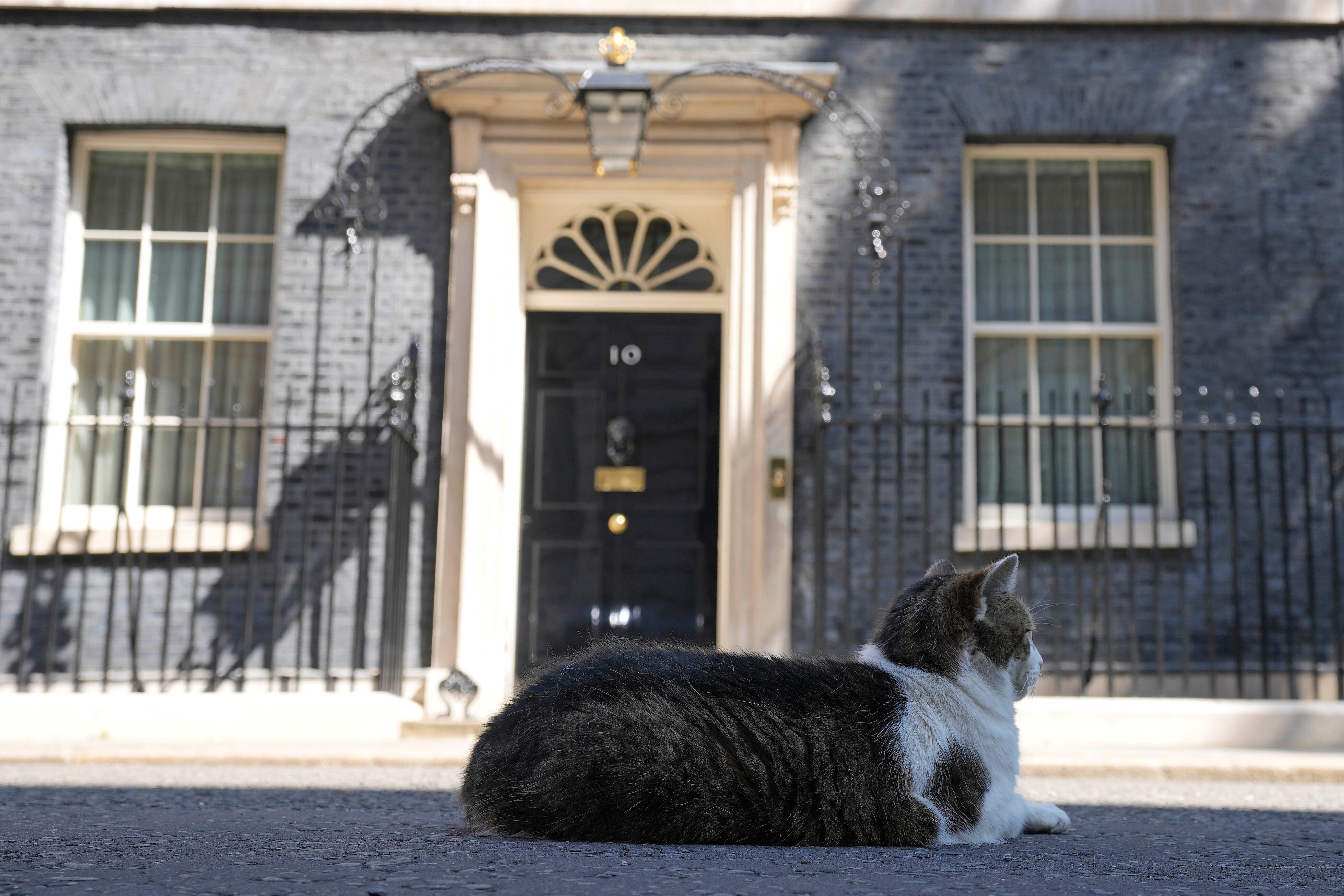UK Conservatives jostle in crowded, testy leadership race
Candidates to replace Boris Johnson as Britain’s prime minister are scattering tax-cutting promises to woo their Conservative Party electorate

Your support helps us to tell the story
From reproductive rights to climate change to Big Tech, The Independent is on the ground when the story is developing. Whether it's investigating the financials of Elon Musk's pro-Trump PAC or producing our latest documentary, 'The A Word', which shines a light on the American women fighting for reproductive rights, we know how important it is to parse out the facts from the messaging.
At such a critical moment in US history, we need reporters on the ground. Your donation allows us to keep sending journalists to speak to both sides of the story.
The Independent is trusted by Americans across the entire political spectrum. And unlike many other quality news outlets, we choose not to lock Americans out of our reporting and analysis with paywalls. We believe quality journalism should be available to everyone, paid for by those who can afford it.
Your support makes all the difference.Candidates to replace Boris Johnson as Britain’s prime minister are scattering tax-cutting promises to their Conservative Party electorate, as party officials prepare Monday to quickly narrow the crowded field of almost a dozen candidates.
Little-known junior minister Rehman Chishti became the 11th candidate to declare he wanted to succeed Johnson, who quit as party leader on Thursday amid a party revolt triggered by months of ethics scandals. Other contenders include Foreign Secretary Liz Truss, Treasury chief Nadhim Zahawi, former health secretaries Sajid Javid and Jeremy Hunt, and backbench lawmakers Tom Tugendhat and Kemi Badenoch.
The new leader will be chosen in a two-stage election, in which the 358 Conservative lawmakers reduce the race to two candidates through a series of elimination votes. The final pair will be put to a postal ballot of all party members across the country. Under Britain’s parliamentary system the next party leader will automatically become prime minister without the need for a general election.
The party’s 1922 Committee, which runs leadership contests, is set to elect a new executive on Monday, which will lay out rules for the contest. The committee wants to complete the parliamentary stage of the election by the time lawmakers break for the summer on July 21. That would mean a summer second round with a new leader in place by the time the House of Commons returns on Sept. 5.
One key decision by the committee will be how many nominations a candidate will need to get onto the first ballot. At the last leadership contest in 2019 it was eight, but the threshold is expected to be 20 or more this time — a move that could eliminate some contenders immediately.
Many Conservatives are wary of leaving Johnson in office for too long, concerned a lame-duck leader is the last thing the country needs with war raging in Ukraine, food and energy price increases driving inflation to levels not seen in decades, and growing labor unrest. Some also worry Johnson — brought down by scandals over money, rule-breaking and his handling of sexual misconduct allegations against lawmakers — could do mischief even as a caretaker prime minister.
In the wide-open leadership contest, contenders are striving to set themselves apart from the perceived front-runner, former Treasury chief Rishi Sunak, who so far has the backing of more than three dozen lawmakers.
Many have repudiated tax increases Sunak introduced to shore up U.K. finances battered by the coronavirus pandemic and Brexit — a 1.25% income-tax rise for millions of workers, and an increase in corporation tax next year from 19% to 25%. Most candidates say they will scrap one or both.
“I want to cut all taxes,” said Hunt, who pledged to slash corporation tax to 15%. “The Treasury’s own numbers say that you’ll get half the money back that you invest in cutting corporation tax because of increased business activity.”
Truss said she would stat cutting taxes “from day one,” and Tugendhat said he would “lower taxes across every aspect of society.”
Sunak, whose resignation on Tuesday helped topple Johnson, has cast himself as the candidate of fiscal probity, and warned rivals not to tell the public “comforting fairy-tales” that will make the country worse off in the long run.
The internal party battle has already turned fractious, with rivals criticizing Sunak’s record as finance minister, and Zahawi, the current Treasury chief, having to fend off claims he was being investigated over his tax affairs.
Zahawi said he was being “smeared” and said he was unaware of any investigation by the tax office or other bodies.
“I’m not aware of this. I’ve always declared my taxes — I’ve paid my taxes in the U.K.,” he told Sky News.
Oddsmakers say Sunak is likely to be one of the final two contenders, but the race is likely to be highly unpredictable. Both Tugendhat, a former soldier on the party’s center-left, and right-wing rising star Badenoch have secured big-name support and could surprise more experienced rivals.
Johnson clung to power for months despite accusations that he was too close to party donors, that he protected supporters from bullying and corruption allegations, and that he misled Parliament about government office parties that broke COVID-19 lockdown rules.
He was fined by police for attending one of the parties — the first prime minister ever sanctioned for breaking the law in office — but went on to survive a no-confidence vote last month in Parliament, even though 41% of Conservative lawmakers tried to oust him.
But Johnson was brought down by one scandal too many — this one involving his appointment of a politician who had been accused of sexual misconduct.
___
Follow all of AP’s coverage of Prime Minister Boris Johnson and British politics at https://apnews.com/hub/boris-johnson